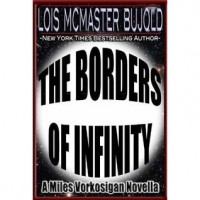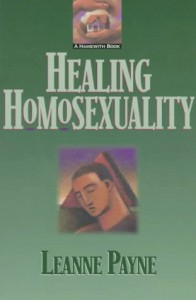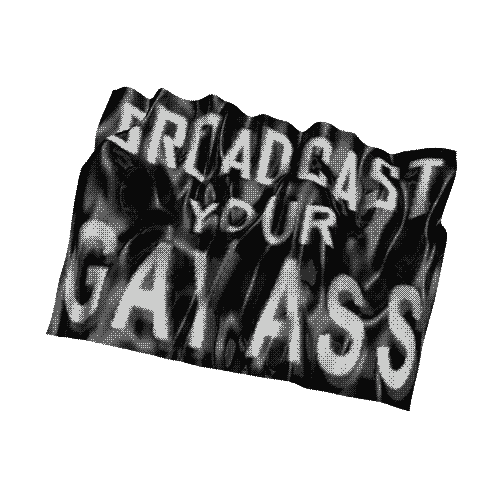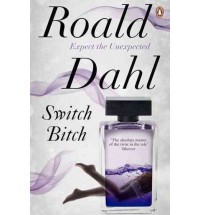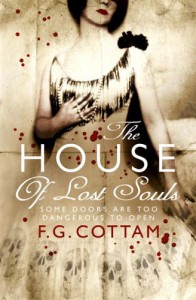
"But books lie, even those that are most sincere. The less adroit, for lack of words and phrases wherein they can enclose life, retain of it but a flat and feeble likeness. Some, like Lucan, make it heavy, and encumber it with a solemnity which it does not possess; others, on the contrary, like Petronius, make life lighter than it is, like a hollow, bouncing ball, easy to toss to and fro in a universe without weight. The poets transport us into a world which is vaster and more beautiful than our own, with more ardor and sweetness, different therefore, and in practice almost uninhabitable. The philosophers, in order to study reality pure, subject it to about the same transformations as fire or pestle make substance undergo: nothing that we have known of a person or of a fact seems to subsist in those ashes or those crystals to which they are reduced. Historians propose to us systems too perfect for explaining the past, with sequence of cause and effect much too exact and clear to have been ever entirely true; they rearrange what is dead, unresisting material, and I know that even Plutarch will never recapture Alexander. The story-tellers and spinners of erotic tales are hardly more than butchers who hang up for sale morsels of meat attractive to flies. I should take little comfort in a world without books, but reality is not to be found in them because it is not there whole."
Reality may not be found in books, but truth can exist there, in some books.
Marguerite Yourcenar imagines the life and perspective of the roman emperor Hadrian, utilizing literally a lifetime of research on her topic. Insofar as the specific activities and people in Hadrian's life are recounted, when the evidence is not there to back up her narrative, she wings it - but in such an elegant way that her own suppositions blend seamlessly with that research (and, happily, she notes each of her additions in her afterward). "Seamless" is a pretty good word to use when describing the entire enterprise. Nothing jars. It is all of a piece. A brilliant book and a thing of beauty.
The seamlessness of its story is also rather besides the point. The author is doing so much more than reimagining certain incidents; she is imagining a whole person. Memoirs of Hadrian is a reconstruction and an ode, a love poem to a man long dead and the means to understanding that man. Hadrian is not the main character in the book, he is the book itself.
And so it reads like an actual memoir - and I'm not sure that that is what I expected. The narrative is one man's life; although there is plenty of excitement and even some suspense, it is a life recounted by a person who knows himself, who wants to explain his life and the things he's learned, but who is not really interested in the kind of storytelling that provides escapist fantasia or thrilling adventure. Although the book is full of enchanting prose that richly illustrates the details of a past world through imagery that is palpable, sublime... I did not find myself really living in ancient Rome, not in the way that I've lived there in more traditional novels or in various television series like Rome or Spartacus or the stagey but ingeniously realized I, Claudius. Rather, I found myself living inside of Hadrian: he is this novel's world. It is an excellent head to live in. His musings and recollections made me muse and recollect; reading Hadrian challenge his own perspective made me challenge my own point of view, my own way of living my life. One would think that contemplating politics and battle, love and beauty, life and death and sickness and fate, on such a potently intellectual level... that this would make for a dry and heavy book. Quite the opposite: I found the effect to be calming, it inspired meditation. Memoirs of Hadrian soothed me.
Not including two afterwords, it is divided into six parts.
ANIMULA VAGULA BLANDULA
The beginning starts at the end. Hadrian takes his own measure and finds himself at times wanting but often satisfied as well.
Meanwhile, I took measure of the novel. I did not know what to make of it. Was this all some sort of idiosyncratic introduction? When would the proper story start, when would the familiar pleasures begin to happen? While I waited, certain things struck me. The joy of moderation. Love-making as a true path to understanding a person. Sleep, precious sleep.
VARIUS MULTIPLEX MULTIFORMIS
Hadrian recounts his early life and the stops & starts on his way to becoming emperor. His relationships with his predecessor, emperor Trajan, and with Trajan's highly impressive wife Plotina. And many other people - personages both major and minor are all rendered equal in Hadrian's musings. The beginning of his lifelong love affair with Greece; a similarly long-lived fascination with cults and the occult, with the world beyond, with signs and wonders. Hadrian the diffidently ambitious young man, the nature-loving warrior, the clear-eyed mystic.
This is where I became enchanted. I realized that this was not truly a novel; Memoirs of Hadrian is a conversation. Despite being the listener, I was an equal part of the conversation. Memoirs of Hadrian told me fascinating stories and I was duly fascinated - but even more, I came to understand a way of looking at the world, at life, at all of its mysteries. The conversation was not a debate and so it did not matter if I agreed or disagreed. Nor was the conversation one between friends around a campfire or lifelong partners retelling tales to each other, comfortably. It was the sort of conversation you have in the beginning of a relationship: you are hearing stories but mainly you are learning about a person; you are learning how to understand them, and so you are learning about yourself as well. How you feel about what they feel. How they think and see and act and move about in the world - and so how you think, and see, and act, and move about in the world. The similarities and the differences and the gaps and bridges in between. I became enchanted, but not just with Hadrian. I became enchanted with the process, with the way I was learning and evaluating and reacting and, above all, how I was moved to constant contemplation. I was enchanted - by Marguerite Yourcenar. By her ability to become Hadrian and to speak to me in his voice.
TELLUS STABILITA
In this lengthy section, Hadrian recounts his goals and challenges and accomplishments as emperor.
This is painful to admit, but I will be frank: I was often bored by this section. Hadrian was a superb emperor, a liberal of the old school, admirable in nearly every way. And so it all became a bit much, this meticulous listing of admirable actions. Just as I am bored when listing my own accomplishments - or, unfortunately, when hearing others list their accomplishments. It doesn't matter that they are excellent achievements and that they say important things about a person and that person's perspective. I will applaud that person. But reading a lengthy resume is rather a chore.
The saving grace for me occurred at the ending of this section: Hadrian and the night, the stars, the mystery and strangeness of the world above and beyond us. Here was the Hadrian I wanted to know.
SAECULUM AUREUM
The beloved youth Antinous: his introduction to Hadrian, their life together, his death, Hadrian's sorrow.
Oh that voluptuous grief! It spawned coinage and cults, temples and cities. I'm familiar with that excessive sadness, that paroxysm, I've seen it and I've felt it. Hadrian became his most real yet when he was at his lowest point. That intensity, that rage, the grief at a life over too soon, that burning need to show the world who that person was, to make the world grieve with you. That inability to express yourself clearly, the feeling that no one can understand your sorrow, not really, not the way you are actually experiencing it. All of this described with passion and delicacy, in language that shimmers, but with the same distance as all else is described. The remove of a memoir written by a thoughtful man. Hadrian describes his excess of emotion meditatively - without excess. That stripping away of drama provided yet another opportunity to step back, to calmly contemplate such terrible things, to better understand others who have experienced the same. Oh Hadrian! Oh, life.
DISCIPLINA AUGUSTA
Hadrian's recounts the autumn of his reign. A bitter uprising in Judea and various thoughts on the nature of religion. Fanaticism is punished and it is given approbation; as always - on matters not relating to Antinous - Hadrian is the most even-handed of men. And at last he introduces the emperors who will follow him - the gentle, decent Antoninus and the s(S)toic, modest Marcus Aurelius.
By this point I knew Hadrian as I know my own hand. I was in a relationship with him, a positive and supportive relationship that had moved beyond and outside of romance into a sort of loving warmth, a complete ease with his viewpoint, a genuine empathy. It was not so much that he could do no wrong - I saw him as I see a true friend. He was a man to me and not a character in a book. I looked up to him but he was no god; he remained mortal through-and-through. At different times in the book Hadrian describes a particularly faithful ally or servant or lieutenant - not in terms of servility but as someone who actually sees him, who sympathizes with him out of understanding and respect, not by command and not with open-mouthed awe. I could be such a person to the Hadrian of this book. Yourcenar somehow, somewhere along the way, made her love for this good emperor a love that I experienced as well.
PATIENTIA
Hadrian wrestles with his sickness, his longing for death. He contemplates the end of things and those things that will continue beyond him. He muses on death itself.
I read much of this book while my friend was dying. I read it in his living room while he slept, bed-bound for weeks at a time, yet not really believing his death was approaching despite all signs to the contrary. I read it at home and at work. I took a long break from the book as well, and then returned to its pages as if meeting up with a sorely-needed friend. I read it in the hospice where I had taken my friend to spend his last days - a beautiful place, a place of contemplation. I read it as he slept there, moaning, hands clenching, legs kicking fitfully. Hadrian and my friend were entirely different but their similarities were deep ones. A fascination with mysticism. An awful loneliness after the loss of their love. And a need to do the right thing - to do right by the world, for the world. They shared those things and they also shared terrible pain at the end, messy and humiliating, an inability to go gently into that good night. I read this last section after my friend had passed on. It was a hard and beautiful thing to read. All men live and love and suffer and all men will die. Some die with eyes closed but others die with eyes open, weary but still curious, still a part of this world, to their very end, and beyond.
Tomorrow I pick up his ashes, his death certificate. They seem like such small things.
His last coherent words to me: "Mark, remember... one book does not make a library!"
Such an odd and funny thing to say. I wonder what he meant. I will probably always wonder.
I miss you already, my friend. Rest a while. I will see you again.

 4
4
 1
1
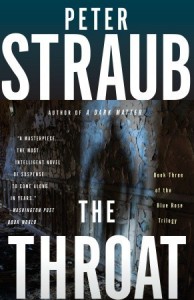






 1
1
